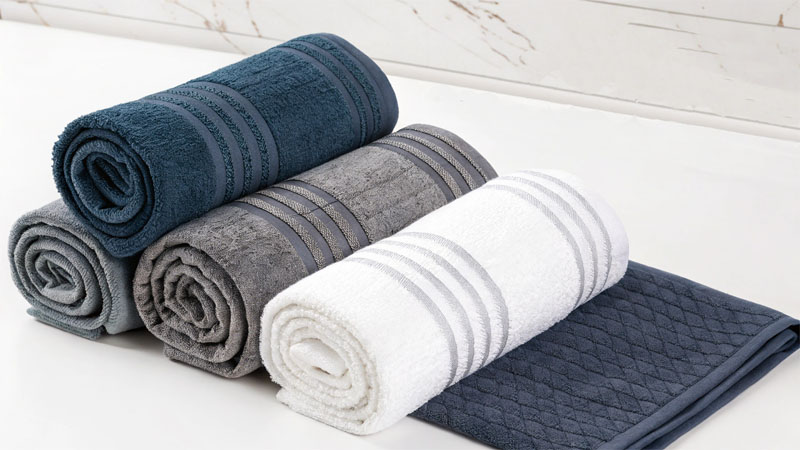Faded hems and popped seams put brand reputation and comfort at risk. How do top swimwear makers use edge reinforcement techniques so beach shorts last longer, fit better, and look fresh even after many wears?
Edge reinforcement techniques for beach shorts include bar-tack stitching at stress points, folded hems with lockstitch or coverstitch, bonded tape or binding for raw edges, and double needle finshes. These methods boost durability, comfort, and clean finish while minimizing unraveling and wear.

I’ve seen weakly finished edges ruin new collections and drive up returns. When brands prioritize robust edge finishing tailored to swimwear needs, beach shorts become long-lasting favorites, trusted by active buyers and retailers alike.
Why do beach shorts need specialized edge reinforcement techniques?
Most activity in swim shorts stresses hems, seams, and openings. Salt, sand, and stretch constantly test fabric and stitching, so standard finishing isn’t enough.
With daily wear and frequent washing, swim shorts need strong, flexible finishes at all outer edges or construction fails. Reinforced edges prevent fraying, seam breakage, and discomfort.

I remember getting customer feedback showing failed bottom hems after just one season. Standard single-needle finishing simply unraveled in sun and surf. By shifting to bar-tacks at slit ends and coverstitched hems, I stopped unraveling and made my product last twice as long—even with heavy pool use.
Edge stress points in beach shorts:
- Bottom hem
- Side slits and vent openings
- Pocket edges and flaps
- Waistband seams
| Area | Typical Failure | End-Use Problem |
|---|---|---|
| Bottom hem | Fraying, rolling | Poor look/comfit |
| Side opening | Seam popping | Shorts split early |
| Pocket edges | Separation | Lose items |
| Waistband seam | Loose threads | Fit fails, bulk |
Which edge reinforcement stitches and finishes work best for beach shorts?
Swimwear requires flexible, multi-thread finishes that move with the body and endure stress.
Bar-tack stitching, lockstitch hems, coverstitch folded edges, and binding tape are proven for swim shorts. Double needle sewing adds extra durability at main seams and openings.

My go-to is bar-tack for all stress points—especially at slit corners, pocket openings, and waistband ends. Lockstitch or three-step zigzag hems prevent rolling and fraying at the bottom. Coverstitch folded edges combine flexibility and flat seams for sport and surf styles. When working with raw edge designs, I use binding tape or tape-overlock for ultra-clean finish. Double needle stitching along main side seams and hem adds an extra layer of hold, critical for stretch swim fabrics.
Key edge reinforcement techniques:
- Bar-tack: short, dense stitch at stress points
- Lockstitch or zigzag hem: prevents fraying, adds security
- Coverstitch: flexible, smooth, for folded hems
- Tape binding: seals and cleans raw edge looks
- Double needle seam: extra hold, reduces seam failure
| Technique | Best for | Main Benefit |
|---|---|---|
| Bar-tack | High stress spots | Stops seam pop |
| Lockstitch/zigzag | Bottom hem | Clean, prevents roll |
| Coverstitch | Sport function | Flex, smooth finish |
| Binding tape | Raw edges | No fray, tidy look |
| Double needle | Main seams | Extra durability |
How does fabric choice impact reinforcement methods for beach shorts?
The right stitch and finish depend on the fiber blend, stretch, and surface of each fabric.
Stretch or mesh shorts need elastic edge stitches; heavy cottons or polyesters handle tighter seams. Lightweight quick-dry fabrics benefit most from tape-bonding and flat coverstitching.

For lightweight, stretchy polyester or nylon, I use coverstitch and lockstitch in high-movement areas. This keeps shorts tidy and flexible. When working with thick canvas-style swimwear, double needle and bar-tack reinforcement at pockets and waistbands eliminate failure. Mesh inserts or lining demand soft tape binding to prevent scratchy edges, plus folded overlock/serging for strength. Every fabric reacts differently under salt and sun—testing samples with each method is vital before bulk sewing.
Reinforcement by fabric type:
- Stretch poly: Coverstitch, flexible hems, soft binding
- Lightweight nylon: Tape finish, lockstitch hems
- Canvas/cotton: Double needle, bar-tack on stress points
- Mesh/lining: Tape binding, overlock edge
| Fabric Type | Recommended Finish | Risk if Ignored |
|---|---|---|
| Stretch poly | Coverstitch, binding | Edge splits, curls |
| Nylon/quick dry | Tape, lockstitch | Fraying, loose hem |
| Canvas/cotton | Double needle, bar-tack | Broken seams/pulls |
| Mesh/lining | Binding, overlock | Uncomfortable edge |
What inspection and testing methods ensure edge durability in swim shorts?
Testing edge strength and finish helps avoid costly returns and reputational risk.
Use stretch, pull, and wash tests before shipping; inspect every batch for neat edge, dense stitching, and secure bar-tacks. Record test results and track any failures to improve consistency.

I run tape-pull tests on every batch—tugging seams to check for pop or unravel. Bottom hems are stretch-tested using 20% over the base tightness, then checked for recovery. Random shorts go through two wash cycles to see how edges wear. Critical points like pocket slits and waistband ends get magnified inspection under good light. Any batch showing edge compromise is reworked before shipment. Data from failure tracking is shared with sewing staff, so weak spots are eliminated in future runs.
Edge durability checks:
- Tape-pull and stretch tests
- Double wash/fade cycle
- Magnified QC for bar-tacks and binding
- Batch records for failures/improvement
| QC/Test Step | Issue Detected | How It Prevents Defects |
|---|---|---|
| Tape-pull test | Seam pop, loose thread | Early failure finds |
| Wash/fade cycle | Fraying, color bleed | True-life simulation |
| Magnified check | Bad bar-tack/binding | Stops overlooked weak spots |
| QC batch records | Track repeat failures | Quality improvement |
Conclusion
Edge reinforcement in beach shorts demands careful choice of stitch, finish, and QC by fabric and style. Bar-tacks, coverstitches, binding, and double needle seams make shorts ready for surf and sun. This technical detail builds loyalty, reputation, and long-term sales.
Professional Insights from Airswimwear
- Stress-point Enhancement: Invest in specialized reinforcement at every edge and high-movement zone; bar-tack and coverstitch prevent most early failures and returns.
- Fabric-driven Finish Selection: Match edge technique to material blend—do not rely on a one-size-fits-all method. Pre-test all new styles before large runs.
- Routine Durability Testing: Make edge-test protocols standard before shipment; use recorded metrics to track and eliminate weak spots across seasons.
- Visual and Tactile QC: Teach QC staff edge inspection for both appearance and comfort so every short meets premium fit and long-lasting standards.
FAQs About Edge Reinforcement for Beach Shorts
1. What is the most durable edge finish for swim shorts?
Bar-tack reinforcement plus folded coverstitch hem protect against popping and fraying.
2. How can I check edge durability during QC?
Use seam-pull tests, visual inspection of bar-tacks, and two wash cycles on random samples.
3. Does edge reinforcement affect comfort?
Proper finishing improves comfort and prevents scratchy or bulky seams—use soft binding for mesh or linings.
4. Which edge technique suits lightweight stretch fabrics?
Coverstitch and tape binding give best results, adding flexibility plus neat finish.
5. Can QC catch all weak edges before shipping?
Routine pull, wash, and magnification checks catch 90%—set up error tracking to catch the rest in future runs.
6. What’s the first sign of bad edge finishing in beach shorts?
Frayed bottom hems, popped side slits, or loose waistband threads after only a few wears.
.png)







-1024x337.png)